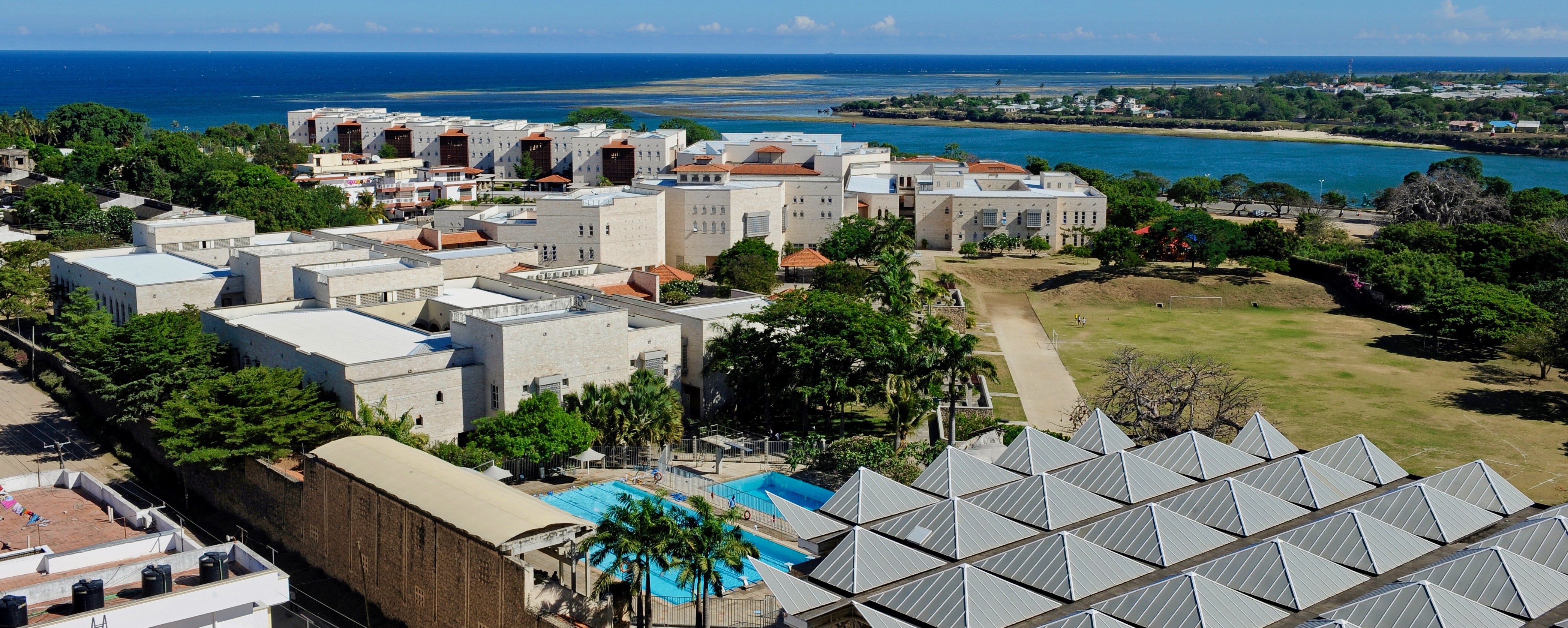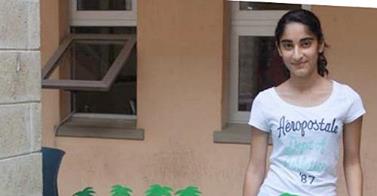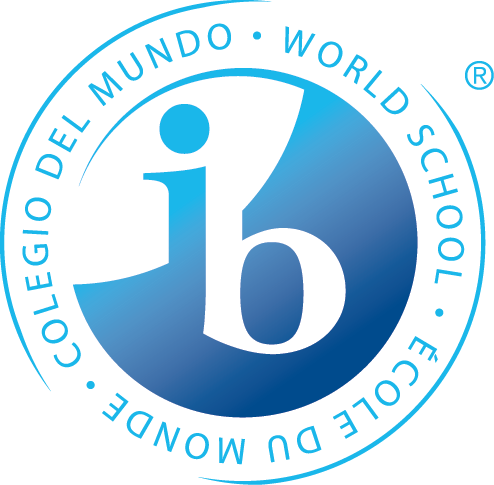Anahita Aman (Class of 2020): building on her Academy experiences to pursue International Development
Anahita Aman, a graduate of the batch of 2020 was here at the academy for 8 years. Currently pursuing History at University College London, she hopes to build a career in International Development.
Having spent her fundamental years at the Academy, Anahita credits the Academy for shaping her into who she is today, not just as a person, but in her interests and career choices as well. Anahita lived in the residences, and she majorly misses that feeling of knowing everyone and the close-knit community here, “which is hard to find in college when you are an international student in a different country” she expressed.
Anahita is currently preparing to pursue International Development as her career and the opportunities provided in school in terms of CAS (creativity, activity, service), and the internship programme at the time which felt like requirements, actually strengthened her application. She believes that the IB is more helpful than we assume it to be, as it instigates a voice inside you that you don’t get in the other curriculums which are a lot to do with mugging up. Anahita proclaims, “Even though you are working in criteria and a certain structure, you still have the space to express your viewpoint.”
The transition from school to university was one she found difficult “School does prepare you for all the writing and reading, but college just gets way more intense, the expectations are way higher, and in school, you have all these teachers who are constantly helping you and you can go sit with them but that kind of comfort is harder to find at university because it is a much larger community with thousands of students so comparatively school is a more close-knit community but university is daunting in that sense.”
The one experience that firmly stuck with Anahita was the Model United Nations (MUN). She served as the Secretary-General for AKAHMUN 2019-20. The MUN taught her a lot in terms of management, planning, communication, leadership and even finance as you work towards an event dealing with multiple stakeholders in the Academy. Known for her calm nature, Anahita was a completely different person in the MUN. She said “That was a fun thing, I never knew that side of me existed until I was put into the position. I didn’t know if I could do it but when you are in the atmosphere and put in that position I think some part of you just takes charge. That’s a new side of me that I saw, that boosted my confidence because I realised I could lead people if I needed to and it was a great thing.”
Anahita calls the Academy a second home, practically growing up there. She believes the IB, teachers, the residences, and her friends have helped and impacted her in more ways than one and have had a significant impact on who she is today.
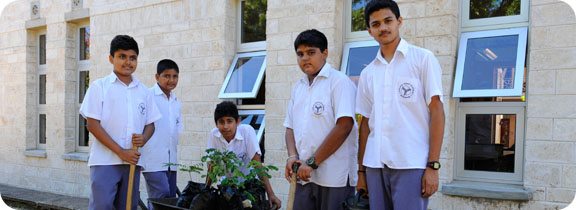
Community Service
Community service is a major part of the student experience at the Academy. Both the curriculum and student life incorporate aspects of community service.
Service opportunities extend the educational experience beyond the classroom and help our students learn about the real-world applications of their studies.
Through community projects with local organisations and groups, our students gain a sense of the connections between their education and the world around them. Students can participate in a variety of structured community initiatives and internships to learn about their place in the world and how they can make a difference to the lives of people in their community.
By partnering with local agencies of the Aga Khan Development Network (AKDN), students learn first-hand about the work of the organisation, and make tangible contributions to the agencies' projects.
In addition, community engagement gives our students an understanding of broad concepts such as human rights, dignity and autonomy, while emphasising the ethos of leaving the world a better place.
The Aga Khan Academy Mombasa used the hiatus due to the COVID-19 pandemic to rethink and enhance its service learning programme. Although a part of the International Baccalaureate (IB) curriculum, the Aga Khan Academies further developed and connected the IB's service learning programme with AKDN's approach to development. From being a standalone experience for residential students on Saturday mornings, which was voluntary for day students, the service learning programme has now been incorporated into the school's timetable, occurring on a weekly basis. Led by the service learning team, all Senior School Middle Years Programme (MYP) mentors have been inducted into the new model and all MYP students now participate in the programme. A handbook has also been developed and all service learning activities are explicitly linked to the curriculum to ensure the programme connects to classroom learning. At the culmination of their service initiatives, the MYP students showcase their projects to the Academy's community, and engage with the Academy's Primary Years Programme students as well as external community partners.
Examples of service projects:
Coast Rural Support Programme: Tree planting at Mtaa community reservoir. The reservoir was created as a community project. The outreach project involved planting 700 indigenous seedlings around the reservoir.
East African Quality in Early Learning: Creation of the fun reading day initiative to promote early grade reading. Inspired by the common 1:10 ratio of students to books in local public primary schools, the first project was to collect books to establish a library at Ng’ombeni Primary School. Through a book drive and other community projects, students collected books and catalogued and prepared them for library use.
Our Junior School and Diploma Programme (DP) students visited the Ng’ombeni Primary School for group reading sessions. This project was then handed over to upcoming DP students to continue.
Education for Marginalised Children in Kenya (EMACK): Student’s council training workshop at Longo Primary School. Sarrah Sheikh came to know the Longo Primary School through her summer placement service. She went on to assist EMACK in establishing student leadership bodies, beginning with Longo Primary School. Topics covered went from effective leadership to communication tools, and the difference between prefects and elected student leaders. Three weeks after this project, the Kenyan government announced the phasing out of the prefect system and the introduction of elected student councils.
“I realised that what we take for granted is like a miracle for other people.”
Madrasa Resource Centre: School painting project at Mpirani Nursery School. After visiting a school in disrepair, the DP students decided that a bright place was needed for the students to learn. They mobilised their fellow students to create bright learning materials and to repaint the school.
Meet our Team
The Aga Khan Academy Mombasa, a programme of the Aga Khan Development, is the first in a global network of 18 planned Academies.
We select a diverse group of students with exceptional academic and leadership potential, offering financial assistance where needed. We offer them a world-class International Baccalaureate (IB) education on a residential campus with outstanding facilities, preparing them to make a positive contribution to society.
Through our inquiry-based approach to learning, students develop independent and collaborative learning skills, problem-solving and critical thinking. We also ensure that students develop their gifts and talents through a wide range of sports, arts and cultural activities, nurturing the holistic development of each child. Our teachers are highly qualified, experienced and committed to their ongoing professional development.
The Aga Khan Academy Mombasa is a special place, where a sense of community and family runs through everything we do. We understand that you may not be able to make it to visit us, so we are visiting you!
To register for an upcoming parent information session or an assessment, please click here.
We look forward to meeting you in your city!
For any queries, please contact mba-admissions@agakhanacademies.org

Middle Years Programme
The Senior School of the Aga Khan Academy, Maputo, when it opens will be an IB World School offering the Middle Years Programme (MYP) of the International Baccalaureate (IB).
Skills for Learning and Life
The Middle Years Programme caters for students in years 7 through 11 (ages 11-16). Students in the MYP are immersed in a challenging and enriching educational environment which emphasises the mastery of basic skills, the ability to analyse and think critically, the development of self-discipline and good work habits, the acquisition of computer literacy and progressive skill development.
The MYP helps students develop an awareness of how they learn best, of thought processes and learning strategies. The programme also encourages student reflection and connections with real world issues. It includes a service component designed to encourage students to become aware of community needs, and to learn from their involvement in carefully organised service activities.
The Curriculum
The MYP integrates the study of the major disciplines, including languages, sciences, literature, social sciences, mathematics, arts, technology and physical education. The five AK curricular strands, which are unique to the Aga Khan Academies, are integrated throughout the curriculum.
Students’ final performance in the MYP is assessed by teams of teachers and validated by the IB through a process of careful external monitoring and moderation of student grades. This process ensures parity of standards across some 600 MYP schools worldwide.
The Hindu: Creating leaders for civil society
The Hindu features the story of Salim, a student from a small Kenyan village who is benefiting from a free of cost world-class education, in the international and culturally rich environment of The Aga Khan Academy, Mombasa. Salim’s story illustrates how the Academy strives to give exceptional students of all socio-economic backgrounds an all-round education so that they become the leaders of civil society.
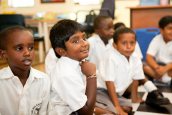
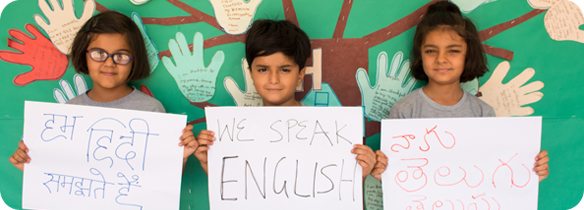
Aga Khan Curricular Strands
The Aga Khan Curricular Strands (AK Strands) are a unique part of the programme offered by the Aga Khan Academies. The AK Strands are areas of learning aimed specifically at developing knowledge, skills and attitudes required by future leaders.
Our goal at the Academies is to develop young people who have strong local roots and are also globally minded. They should be able to become leaders in whichever fields they choose.
To help achieve this goal, we have identified five areas of learning, the Aga Khan Curricular Strands, that we believe are important for our students. These are:
- Ethics
- Pluralism
- Cultures (with an emphasis on Muslim civilisations)
- Governance and Civil Society
- Economics for Development.
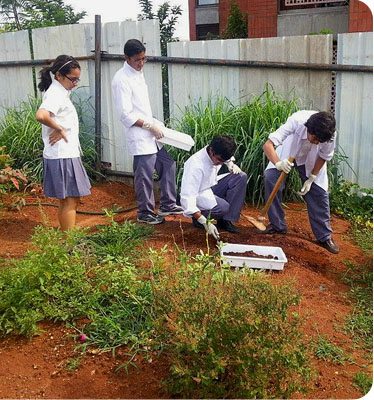 Implementing the AK Strands
Implementing the AK Strands
The Aga Khan Curricular Strands are not taught as independent subjects. Instead, we weave them into the existing subject areas of the academic curriculum. They help inform the selection of content and themes for study. The AK Strands also provide direction for school life outside the classroom in areas such as policy making, recruitment, student life and residential life.
Two of the AK Strands, Ethics and Pluralism, help students develop values and dispositions required by ethical leaders. Our students learn about these areas in theory and are also encouraged to practice what they learn in their everyday lives.
Through the other three AK Strands, our students learn about ideas that are important to the functioning of societies. In particular, they learn about how these ideas impact people’s lives in countries of the developing world. The knowledge they gain helps them understand key issues from both local and international perspectives.
The AK Strands in practice
The Aga Khan Curricular Strands were developed at the first Aga Khan Academy in Mombasa and are designed to be used in different cultural contexts. Teachers at the Aga Khan Academy Hyderabad helped tailor the AK Strands for the local environment in India.
For example, grade 3 students worked on a history and geography unit about Hyderabad that related to Economics for Development. The students examined how the physical features of the area influenced the city and its economic activity. They learned about employment today and also looked at traditional forms of work, including a visit to a nearby weaving cooperative. This unit helped the students understand both general ideas about economics and their impact on daily life in Hyderabad.
Through the Aga Khan Curricular Strands, our students develop attitudes and values that will help them throughout their lives. They also gain knowledge and understanding that will allow them to contribute positively to their societies in the future.
For more information on the educational programme offered at the Aga Khan Academy Hyderabad, please visit the Academic Programme page.
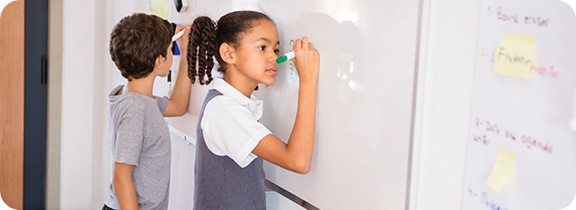
Aga Khan Curricular Strands
The Aga Khan Curricular Strands (AK Strands) are a unique part of the programme offered by the Aga Khan Academies. The AK Strands are areas of learning aimed specifically at developing knowledge, skills and attitudes required by future leaders.
Our goal at the Academies is to develop young people who have strong local roots and are also globally minded. They should be able to become leaders in whichever fields they choose.
To help achieve this goal, we have identified five areas of learning, the Aga Khan Curricular Strands, that we believe are important for our students. These are:
- Ethics
- Pluralism
- Cultures (with an emphasis on Muslim civilisations)
- Governance and Civil Society
- Economics for Development.
 Implementing the AK Strands
Implementing the AK Strands
The Aga Khan Curricular Strands are not taught as independent subjects. Instead, we weave them into the existing subject areas of the academic curriculum. They help inform the selection of content and themes for study. The AK Strands also provide direction for school life outside the classroom in areas such as policy making, recruitment, student life and residential life.
Two of the AK Strands, Ethics and Pluralism, help students develop values and dispositions required by ethical leaders. Our students learn about these areas in theory and are also encouraged to practice what they learn in their everyday lives.
Through the other three AK Strands, our students learn about ideas that are important to the functioning of societies. In particular, they learn about how these ideas impact people’s lives in countries of the developing world. The knowledge they gain helps them understand key issues from both local and international perspectives.
The AK Strands in practice
The Aga Khan Curricular Strands were developed at the first Aga Khan Academy in Mombasa and are designed to be used in different cultural contexts. Teachers at the Aga Khan Academy Hyderabad helped tailor the AK Strands for the local environment in India.
For example, Grade 3 students worked on a history and geography unit about Hyderabad that related to Economics for Development. The students examined how the physical features of the area influenced the city and its economic activity. They learned about employment today and also looked at traditional forms of work, including a visit to a nearby weaving cooperative. This unit helped the students understand both general ideas about economics and their impact on daily life in Hyderabad.
Through the Aga Khan Curricular Strands, our students develop attitudes and values that will help them throughout their lives. They also gain knowledge and understanding that will allow them to contribute positively to their societies in the future.
For more information on the educational programme offered at the Aga Khan Academy Dhaka, please visit the Academic Programme page.

